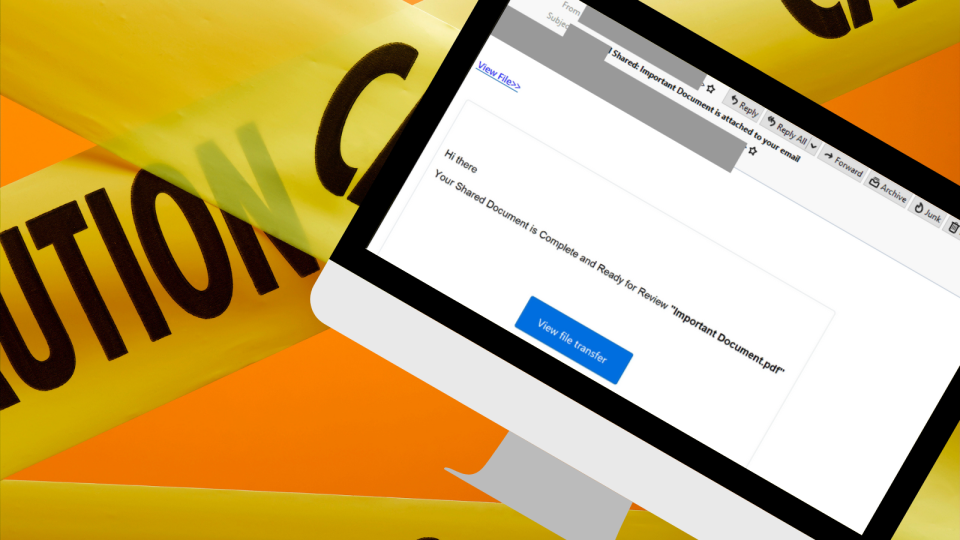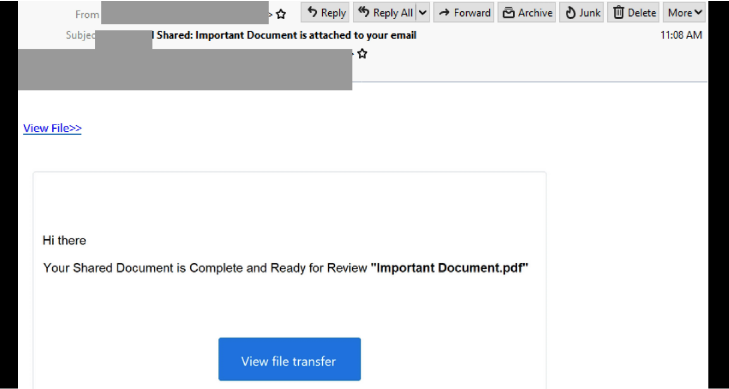'Do not open': Email attack threatens to steals your bank details

Cyber safety group MailGuard has intercepted a malicious email, tricking Aussies into clicking on an “important file” and giving away their bank details.
The phishing email is disguised as a file-sharing notification, with the subject line claiming an “Important Document is attached to your email”.
MailGuard revealed that while the actual email isn’t impersonating a company, it’s style is similar to that of file-sharing app Dropbox.
Once users click on the link, they are led to another page which claims they have been “invited to view the attached shared file”, signed off by “The Dropbox Team”.
If users clicked that link, they are led to a Microsoft-branded page, and are prompted to sign into their accounts. This is where attackers harvest users’ details for later use.

“Whilst MailGuard is stopping this email scam from reaching Australian businesses, we encourage all users to exercise caution when opening messages, and to be extra vigilant against this kind of cyber-attack,” MailGuard stated.
“If you are not expecting a file from the sender, do not open the email, download files or click through on the links. Check with the sender first, even if they are known to you.”
MailGuard said that the email is tricky, because it intrigues recipients and motivates them to click on the link as soon as possible to find out what the “important document” really is.
Thousands at risk of online threats this Xmas
This is just one example of Aussies being targeted by cybercriminals, with scammers expected to ramp up action over the holiday period, according to cyber safety platform McAfee.
McAfee revealed nearly 50 per cent of Aussies expected to up their online shopping, despite the same percentage knowing that security threats will be more prevalent this Christmas.
“We’re so consumed with planning Christmas events, ticking off our to-do lists and buying presents online that we often don’t have a minute to stop and think about whether we are taking unnecessary risks,” McAfee ANZ cyber safety ambassador Alex Merton-McCann said.
“It is now more important than ever to take the necessary steps to protect yourself and our loved ones this holiday season,” he said.
That means browsing with caution, protecting your identity and employing multi-factor authentication.
MailGuard also urges Aussies not to click on any links within emails if the email isn’t addressed to you by name.
Also, check closely for spelling errors, or any omissions of personal information. And, if you weren’t expecting to hear from the sender, it’s likely a scam.
Are you a millennial or Gen Z-er interested in joining a community where you can learn how to take control of your money? Join us at The Broke Millennials Club on Facebook!

 Yahoo Finance
Yahoo Finance 